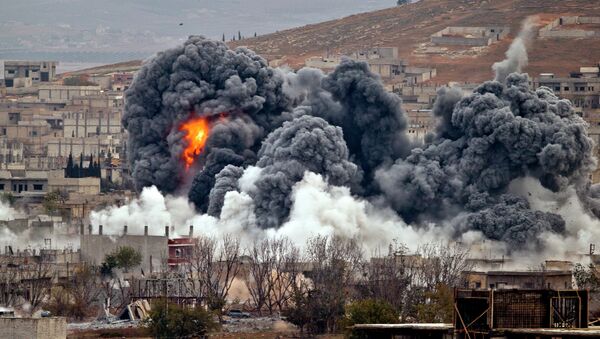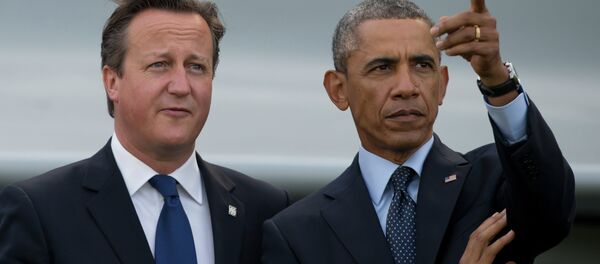In what has been interpreted as a sign that Prime Minister David Cameron may be willing to discuss with MPs the possibility of expanding the campaign from Iraq into Syria, Mr Fallon raised questions about the effectiveness of the current approach during an interview with BBC Radio 4.
"We've always been clear that ISIL has to be defeated in both Syria and Iraq. We have plenty to do in Iraq. Each member of the coalition is doing different things. ISIL is organized and directed and administered from Syria. There is an illogicality about not being able to do it."
PM Calls for 'Full Spectrum' Approach to ISIL
While the PM last year won support from MPs to carry out air strikes in Iraq, the recent Tunisia terror attack has led to Cameron calling for a "full spectrum" response to ISIL, with suggestions it may include an aerial bombing campaign in Syria.
If UK serious about anti-ISIS fight, why focus on doubling down on v limited & often counter-productive (esp in Syria) air strikes?
— Julien Barnes-Dacey (@jbdacey) July 2, 2015
"It is a new parliament and MPs will want to think very carefully about how we best deal with ISIL. [There is an] illogicality [with] ISIL not respecting the border lines; they don't differentiate between Syria and Iraq, they're establishing this evil caliphate across both countries. There is no legal bar to us operating in Syria but we don't have the parliamentary approval for it," Fallon said.
The defense secretary pointed out that if direct links can be drawn between the Tunisian attack and ISIL it would increase calls for the bombing of strategic targets in Syria.
"If we can link it back, [if] it does link directly back to ISIL in Syria then we will have to reflect with the rest of the coalition how best we deal with that."
Expanding Military Campaign — Unpopular
Despite governmental enthusiasm for expanding the aerial bombing campaign into Syria, large sections of the British public and political establishment are unwilling to commit to more overseas operations, particularly given the fallout of the UK's Iraq intervention of 2003.
In August 2013 David Cameron was somewhat embarrassingly defeated in a House of Commons vote over participating in military strikes in Syria, following allegations Bashar al-Assad's forces used chemical weapons while fighting against rebel groups.
UK Defence Secretary spits on concept of sovereignty, says #Britain could start bombing #Syria http://t.co/hHWMla9acg pic.twitter.com/kWUk6enDh8
— Navstéva (@Navsteva) July 1, 2015
The unwillingness to intervene in Syria was once again demonstrated last year, when Cameron stopped short of trying to win approval of expanding air strikes to targets in Syria following objections from the Labour party.
Michael Fallon is right about silliness of going after ISIS in Iraq and not Syria. Hope Labour don't stick to the awful Miliband line.
— James Bloodworth (@J_Bloodworth) July 2, 2015
However, it's thought the prime minister may be willing to test the waters on how the public and MPs feel about expanding military action to Syria in light of the recent Tunisia attack.
Overall ISIL Strategy 'Failing'
Despite calls for more expansive action, some critics have argued that the US-led coalition's strategy against ISIL is ultimately flawed, and that a UK aerial expansion into Syria will not be effective in overcoming the campaign's shortfalls.
Many say that air strikes alone will not be enough to contain the group, while experts have also been highly critical of the capabilities of local Iraqi and rebel forces in tackling ISIL's well-organized units.
Defense analyst Anthony Tucker-Jones told Sputnik that the lack of ground troops limits the impact of air strikes.
"Fundamentally what we've got in Syria is no real political will for intervention there, which leaves the highly porous Syrian border with Iraq open to Islamic State influence. There are air strikes and drone strikes going on, but they're nowhere near sufficient enough to close the border."
Reflecting the unwillingness of many Britons to expand their military operations in the Middle East, Mr Tucker-Jones said western powers have a history of failing to implement adequate programs to promote peace following military interventions.
"There seems to be this sort of willful neglect of the outcome of any military operation. So often western powers intervene with the view to bringing a short-term conflict to an end, but then they don't have any viable strategies to deal with what was to come after."




